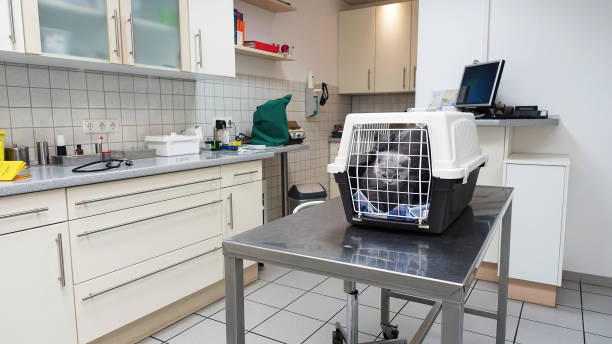How to Train Your Cat to Utilize the Litter Box: A Step-by-Step Guide
How to Train Your Cat to Utilize the Litter Box: A Step-by-Step Guide
Blog Article

Felines are precious companions in millions of homes worldwide, and part of the responsibility of feline ownership involves picking the right litter and litter box that matches both the needs of our feline good friends and our own. With a myriad of choices available, browsing through the options can be overwhelming. This guide intends to simplify that procedure, supplying you with everything you require to know about cat litter, litter boxes, and systems.
The initial step in cat care is picking the right cat litter. Choices vary from clumping, non-clumping, silica gel, natural, and organic varieties. Clumping litter is popular for its ease of cleansing, while non-clumping litter is often less expensive and still reliable. Natural and organic litters offer eco-friendly alternatives but can differ in their absorbency and smell control capabilities.
Modern cat owners can select from a range of litter box systems, including automated and self-cleaning models that use benefit and decreased upkeep. These systems can be a substantial investment but deserve thinking about for those with hectic lifestyles.
Eco-conscious cat owners have a number of alternatives, consisting of eco-friendly and flushable cat litters that reduce ecological effect. Nevertheless, it is essential to balance benefit with ecological issues, as some flushable litters might not be suitable for all plumbing systems.
Proper training is vital, specifically for kittycats or felines transitioning to a new type of litter or box. Consistency and patience are essential. Regular cleaning and upkeep of the litter box are crucial for the health and well-being of your cat, in addition to for odor control in your home.
The advantages and disadvantages of various kinds of cat litter are huge. Silica gel litter is extremely absorbent and lasting however can be more pricey. Natural litters, while much safer for the environment, may not control odors as efficiently as synthetic choices. Understanding the specific needs of your cat and your preferences for upkeep can assist in making the finest option.
When selecting a litter box, consider the size, shape, and style that will best suit your feline. Some felines choose open boxes, while others like the personal privacy of a covered box. Senior felines and kitties may need boxes with lower sides for easy gain access to.
Smell control is a substantial issue for numerous cat owners. Choosing the right kind of litter, routine cleansing, and making use of devices like odor eliminators and litter mats can help keep your home smelling fresh.
The health tracking litters readily available today can inform owners to prospective health problems by changing color in response to modifications in pH or the existence of blood. Furthermore, the environmental effect of cat litter is a crucial factor to consider, with numerous owners choosing biodegradable or recycled alternatives.
Selecting the right cat litter, litter box, and upkeep regimen is vital for the health and joy of your cat, as well as for keeping a tidy and odor-free home. By thinking about the needs of your feline and the useful aspects of litter and litter box maintenance, you can develop a comfortable and sanitary environment for your furry pal.
How frequently Wheat Cat Litter should I change my feline's litter? It depends on the kind of litter you're utilizing and how many felines use package. Clumping litter ought to be scooped daily, with the entire box altered every 2-4 weeks. Non-clumping litter typically needs more frequent changes.
Are automated litter boxes worth the financial investment? Selecting the ideal cat litter, litter box, and maintenance regimen is vital for the health and happiness of your cat, along with for keeping a clean and odor-free home. By thinking about the needs of your feline and the practical elements of litter and litter box maintenance, you can create a comfy and hygienic environment for your furry pal. For many, the benefit and reduced upkeep of automated litter boxes make them a worthwhile financial investment. However, some felines may hesitate of them, so it's not a one-size-fits-all solution.
Can diet plan affect EcoFriendly Litter Boxes litter box smell? Yes, a cat's diet plan can considerably affect the odor of their waste. Premium, easily digestible foods tend to produce less foul-smelling waste.
By understanding the huge world of cat litter, litter boxes, and systems, you're well on your way to offering a tidy, comfortable, and sustainable environment for your feline.
Selecting the right cat litter, litter box, Wheat Cat Litter and maintenance regimen is important for the health and joy of your feline, as well as for keeping a tidy and odor-free home. By thinking about the needs of your feline and the useful aspects of litter and litter box maintenance, you can develop a comfy and sanitary environment for your furry good friend.